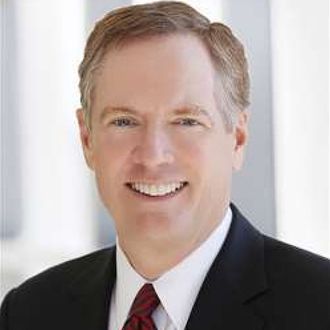
Donald Trump’s selection of Robert Lighthizer for the job of United States trade representative answered a real question that probably occurred to a lot of people: Where would Team Trump find a Republican trade-policy expert who shares Trump’s not-exactly-fashionable protectionist views? The answer: in the Reagan administration!
A big part of Ronald Reagan’s “Teflon” reputation is a result of conservatives’ ability to forget the many, many times he abandoned conservative orthodoxy on issues ranging from abortion to taxes to nuclear disarmament — to trade. Here’s a former Reagan deputy USTR correcting the record about the Gipper’s trade policies:
President Reagan often broke with free-trade dogma. He arranged for voluntary restraint agreements to limit imports of automobiles and steel (an industry whose interests, by the way, I have represented). He provided temporary import relief for Harley-Davidson. He limited imports of sugar and textiles. His administration pushed for the “Plaza accord” of 1985, an agreement that made Japanese imports more expensive by raising the value of the yen.
The author of this 2008 New York Times op-ed was none other than Robert Lighthizer. And he does provide a useful reminder that free trade has been respected in rhetoric more than reality by Republican administrations. Back in the day, powerful GOP representatives of textile-producing states like Jesse Helms and Strom Thurmond were forever extorting protectionist policies from Republican presidents. Indeed, an agreement to hammer textile imports was a key solvent in the famous deal between Thurmond and Richard Nixon that was the basis for the original GOP Southern strategy (not coincidentally, the grand patron of the South Carolina GOP for many years was textile baron Roger Milliken).
Having someone like Lighthizer at USTR resolves another problem for Trump: the traditional rivalry over trade policy between that agency — typically a big trade proponent in most administrations — and the Commerce Department, which has long represented the interests of manufacturers yearning to be protected. And Trump has made trade policy in his administration even more complicated than usual, as Zeeshan Aleem notes at Vox:
Trump has created two entirely new positions in government designed to deal with trade. He’s named Jason Greenblatt, his longtime business lawyer, as his “special representative for international negotiations.” And Peter Navarro, an early Trump backer and economist best known for his manifesto “Death by China,” has been selected to oversee the new National Trade Council.
But all these worthies, including Commerce Secretary-designate Wilbur Ross, are singing from the same protectionist hymnal. So it may be that Trump is simply building a broad and deep team — himself included — to focus on his highest and most controversial economic priority. He probably hopes that with enough time and effort, the free-trade views of his immediate Republican predecessors (and of most Republican members of Congress, and of most conservative policy wonks and business groups) will be understood as a brief interruption of an anti-free-trade tradition on the right that stretches back to Henry Clay, and beyond him to Alexander Hamilton. Or, at least, he would probably hope that if he were aware of those facts.






























